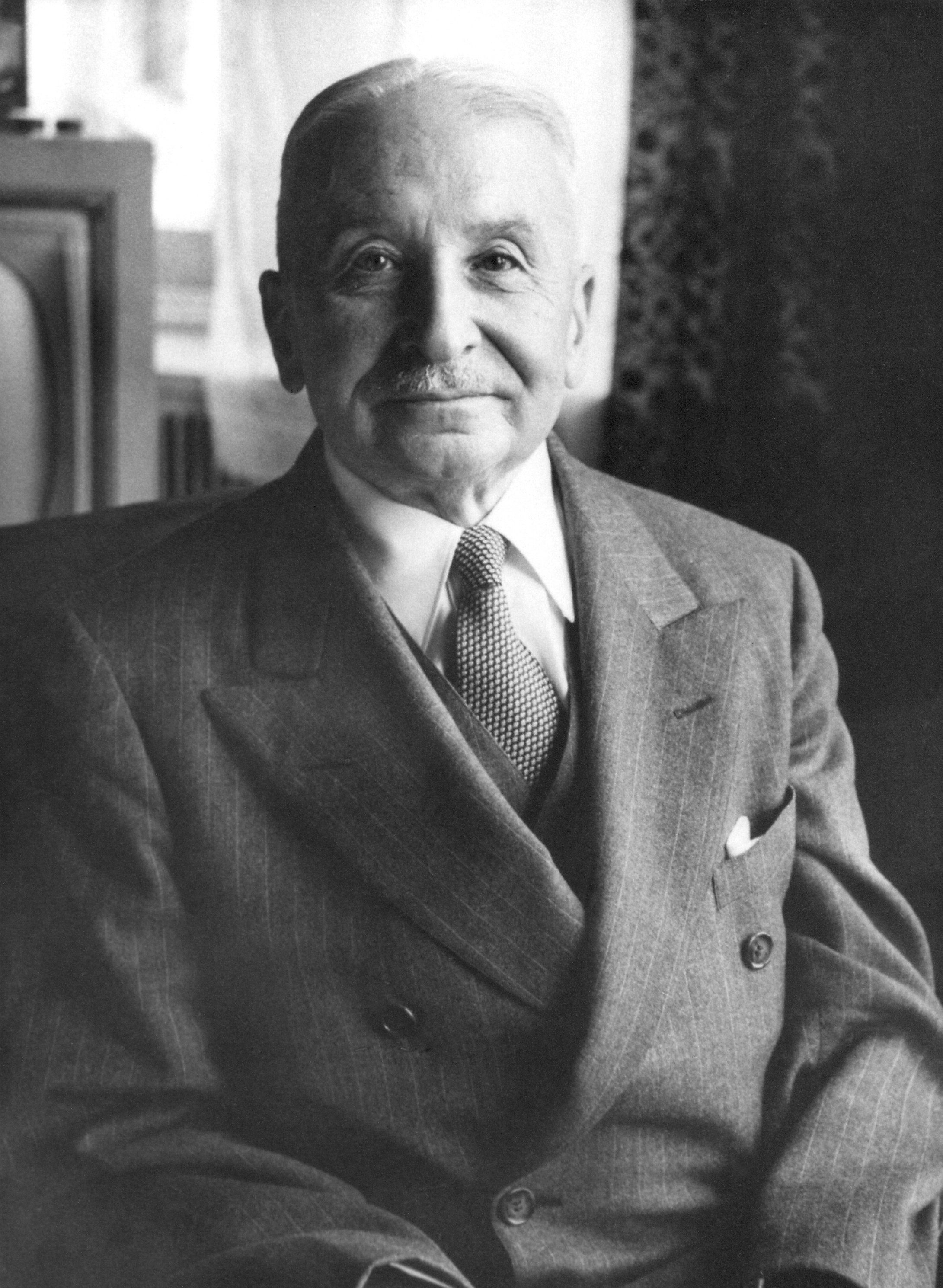Ludwig von Mises Frases famosas
“O progresso é precisamente aquilo não previsto pelas regras e regulamentos.”
Progress is precisely that which the rules and regulations did not foresee.
Bureaucracy - página 67, Ludwig Von Mises - Yale University Press, 1944 - 125 páginas
The goal of liberalism is the peaceful cooperation of all men. It aims at peace among nations too. When there is private ownership of the means of production everywhere and when laws, the tribunals and the administration treat foreigners and citizens on equal terms, it is of little importance where a country's frontiers are drawn.
Omnipotent Government : The Rise of the Total State and Total War (1944)
Citações de homens de Ludwig von Mises
Economics is not about things and tangible material objects; it is about men, their meanings and actions.
Human action: a treatise on economics - página 92, Ludwig Von Mises - W. Hodge, 1949 - 889 páginas
Ação Humana
Economics deals with the real actions of real men. Its theorems refer neither to ideal nor to perfect men, neither to the phantom of a fabulous economic man (homo oeconomicus) nor to the statistical notion of an average man (homme moyen). Man with all his weaknesses and limitations, every man as he lives and acts, is the subject matter of catallactics. Every human action is a theme of praxeology.
Human action: a treatise on economics - página 646, Ludwig Von Mises - Yale University Press, 1949 - 889 páginas
Ação Humana
Citações de idade de Ludwig von Mises
If one rejects laissez faire on account of man's fallibility and moral weakness, one must for the same reason also reject every kind of government action.
Planning for Freedom (1952), p. 44
“A história da humanidade é a história das idéias.”
The history of mankind is the history of ideas.
Socialism: an economic and sociological analysis - página 566, Ludwig Von Mises - J. Cape, 1953 - 599 páginas
Ludwig von Mises frases e citações
There is in the market economy no other means of acquiring and preserving wealth than by supplying the masses in the best and cheapest way with all the goods they ask for.
Human action: a treatise on economics - página 616, Ludwig Von Mises - Yale University Press, 1949 - 889 páginas
Ação Humana
“Ninguém pode ser chamado para estabelecer o que é necessário para que alguém seja feliz.”
Nobody is called upon to establish what could make another man happy.
Human action: a treatise on economics - página 647, Ludwig Von Mises - Yale University Press, 1949 - 889 páginas
Ação Humana
If history could teach us anything it would be that private property is inextricably linked with civilization.
Omnipotent government: the rise of the total state and total war - página 58, Ludwig Von Mises - Yale University Press, 1944 - 291 páginas
A mentalidade anticapitalista
Ação Humana
Teoria e história
Teoria e história
Ludwig von Mises: Frases em inglês
Ch. VII : The Economic, Social, and Political Consequences of Interventionism § 1. The Economic Consequences https://fee.org/resources/interventionism-an-economic-analysis-2#economic
Interventionism: An Economic Analysis https://fee.org/resources/interventionism-an-economic-analysis/ (1940)
Contexto: The unhampered market economy is not a system which would seem commendable from the standpoint of the selfish group interests of the entrepreneurs and capitalists. It is not the particular interests of a group or of individual persons that require the market economy, but regard for the common welfare. It is not true that the advocates of the free-market economy are defenders of the selfish interests of the rich. The particular interests of the entrepreneurs and capitalists also demand interventionism to protect them against the competition of more efficient and active men. The free development of the market economy is to be recommended, not in the interest of the rich, but in the interest of the masses of the people.
Part II : The Economics of a Socialist Community, § I : The Economics of an Isolated Socialist Community, Ch. 5 : The Nature of Economic Activity, p. 97 http://www.econlib.org/library/Mises/msS3.html#Part%20II,Ch.5
Socialism (1922)
Fonte: Socialism: An Economic and Sociological Analysis
